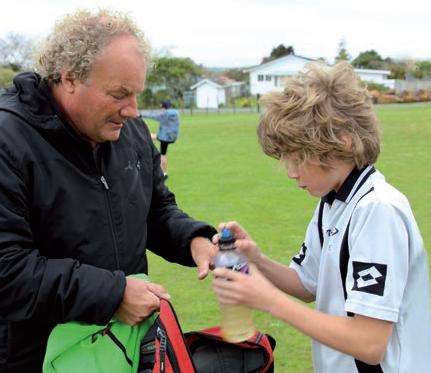Key points about relationships with your teenager
- the best parenting skill you can have is to simply act like one
- stop trying to be a friend rather than a parent
- in order for your kids to respect you, you must give them a person worth respecting
- let your teenager know that they can trust you

Be a parent rather than a friend to your teen
The best parenting skill you can have is to simply act like one!
In order for your kids to respect you, you must give them a person worth respecting.
You are a parent and that is priceless.
Take your responsibility as a parent seriously
No parent can afford to fall into the habit of ignoring parental responsibilities simply because you want your teenager to love you. The way to be an effective parent is to take that responsibility seriously. And if you do a good job, your teenager will have many friends that are valuable but you might not always be one of them.
Sometimes you have to make decisions that will not be popular with your teenager, but are in their best interest. The good news is that no amount of parenting will destroy your relationship with them while they know that they are loved and respected.
Young people do want you to act like their parent
Parents do things that friends either can't, or won't do. Parents make the hard decisions and parents say no.
Teenagers don't want their parents to act like them, talk like them or dress like them. In spite of grunts, attitude, and carrying on, young people do want you to act like their parent.
Provide limits as well as a safe and secure home
They also want to spend quality time with you, and know that they are valued and important to you. Teenagers need limits and a safe, secure home in which to grow. It's your job to provide both, but trying to act like their friend can make them feel insecure.
Teenagers who view their parents as authority figures and providers are more likely to be close to them in adulthood. Relating to your teenager, based on your own experiences, can be a good way to work through challenging situations, but you should never lose your parent status.
"It just seemed like Michael hated us all the time. At times we wondered what happened to the lovely little guy we used to know. But we hung in there and didn't give up our job as parents. After a couple of years, he grew out of it – taking up playing rugby, being more respectful to us, and becoming a popular mate with his friends."
How to let your teen know they can trust you
It's normal for a teenager to, at some point, not particularly like mum and dad. If your teen doesn't like you and disagrees with you at every opportunity, chances are you are simply doing your job as a parent in raising your kids.
It's also normal for teens to shift their emotional attachment from you to their friends. This is part of 'growing up' but it is still important to maintain a strong family connection by providing a safe base for them to return to.
Trust and respect are a two-way street
Both sides must earn trust and respect. If you behave in a manner that a parent should – nurturing, caring, taking an interest and putting in place boundaries – then eventually when your kids have a problem, they will come to you.
When they do, it is vital that you show them respect and trust. Try to hear them out and not be judgemental. Put yourself in their shoes and then, using your years of wisdom, give them some practical advice – if that's what they want! They may just need to offload – so listen, hear and let them know that you are a safe place.
Don't break their confidence
Don't 'interfere' or break their confidence – respect your teen and show that you can be trusted. You may not like what you hear, however, ask yourself the question – what would you prefer? To know what is happening in your teen's world or to be completely in the dark?
Show them this trust and respect and they will come back to you, your relationship will grow stronger and closer as they mature.
Acknowledgements
The Paediatric Society of New Zealand and Starship Foundation are very grateful to Northland District Health Board (NDHB) for permission to reproduce this content from the Whānau pack: Tools for families and parents with teenagers.
Copyright
NDHB own the copyright in this material and it must not be copied or reproduced except as expressly permitted by NDHB.
